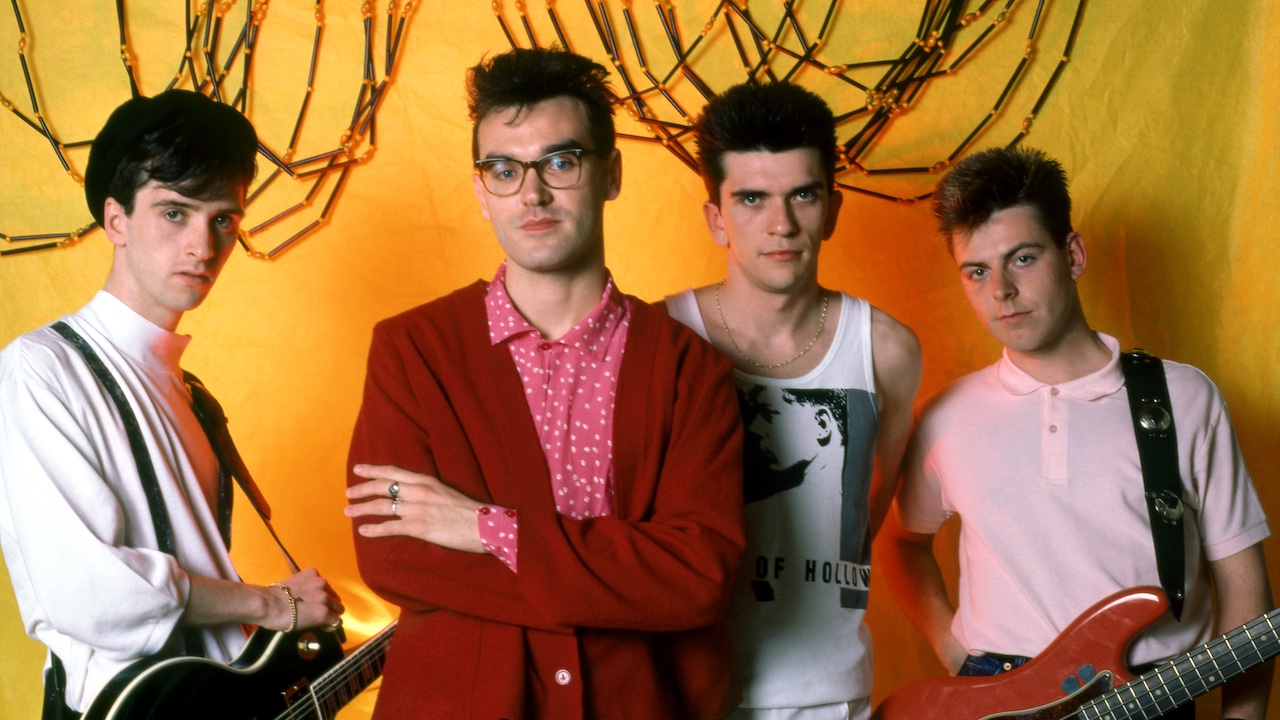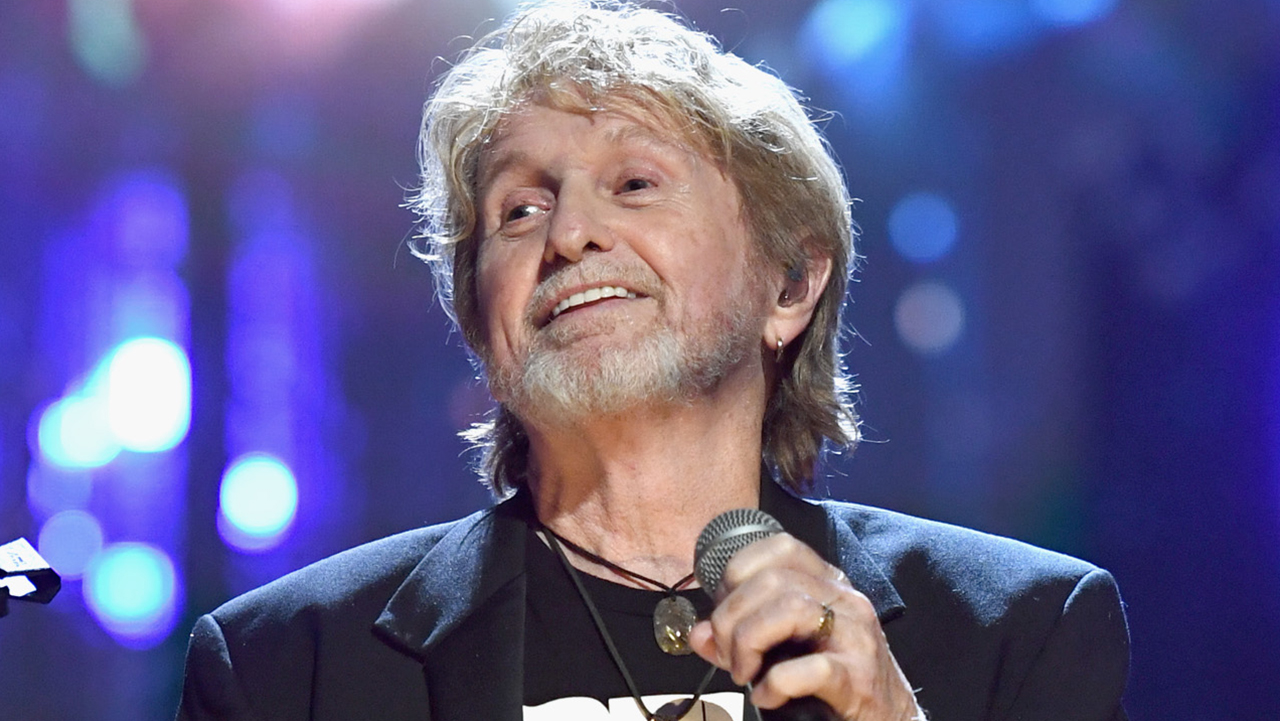“We feel that music should be used in order to make serious statements”: how The Smiths turned from a good band into a great one on Meat Is Murder
The indie trailblazers’ second album turns 40 this month and sealed their status as one of the best British guitar groups ever

Perhaps sensing that theirs was an alchemy that would burn brightly but briefly, The Smiths did things in a hurry. The Manchester quartet had only released their debut single, the chiming, urgent guitar-pop of Hand In Glove, in May 1983. By the time their second album Meat Is Murder arrived at the beginning of 1985, they had released a masterful debut (1984’s The Smiths), an outtakes, radio sessions and odds and sods collection that for any other band would mark a career peak (Hatful Of Hollow, also 1984) and a run of classic singles that didn’t even make it on to their studio albums (This Charming Man, Heaven Knows I’m Miserable Now, How Soon Is Now?, Shakespeare’s Sister).
If they had started their career demonstrating that they were in rarefied air, it was on Meat Is Murder where Morrissey, Johnny Marr, Andy Rourke and Mike Joyce showed that they were untouchable. The record, which turns 40 this week, is where everything began to coalesce for a group who would become one of the all-time great British bands.
The UK was in a rotten state in the mid-80s and here was a band holding up a black mirror to Thatcher’s Britain. Morrissey’s lyricism now becoming ever more politicised alongside his wry eye-rolls at British mundanity, from the quaint to the violent. Led by Johnny Marr’s rhythmic, dynamic guitar parts – Marr is a man who plays the guitar like he has six hands – the music sounded like it was trying to wriggle out of a straitjacket, fleet-footed and propulsive at some points, yearning in minor-chord majesty at others, epic but never bombastic, a criss-crossing of guitar melodies and lithe grooves. Here was a blueprint for British indie that almost every band who followed in their wake, from Blur to Radiohead to Bloc Party to Oasis to The Libertines, would lift from.
“I was exploring what I could do,” Marr told Uncut back in 2008. “I suppose I was feeling let loose on that second record. The first period was over – of getting known, learning to play onstage, getting a label and getting a relationship with the audience and then that’s worked out. I went into it just rolling up my sleeves and thinking, ‘Let’s see what we can do!’”
Similarly, frontman Morrissey, charismatic and playful and a few decades off becoming the cringe-y, caricature controversy-magnet he is today, was seizing his moment in the spotlight. He wanted the band’s second record to make a statement, and it did, quite literally: it was called Meat Is Murder, remember?
“I think the statement is self-explanatory, really,” the singer said of the title in an interview on TV show The Old Grey Whistle Test. “We use it because we feel that music should be used in order to make serious statements, because so many groups sell masses and masses of records and don’t raise people’s levels of consciousness in any direction. We find that quite sinful, especially in these serious times.”
Morrissey had become a vegetarian when he was in his early teens, following in the footsteps of his mother, who had abstained from eating meat as long as he could remember. “We were very poor and I thought that meat was good source of nutrition,” he told animal rights organisation PETA in 1985. “Then I learned the truth. I guess you could say I repent for those years now.”
The latest news, features and interviews direct to your inbox, from the global home of alternative music.
His ambition, he told The Old Grey Whistle Test, was for the title of their second record to inspire a similar reflection on their meat consumption from fans. “If they eat meat, I’d like them to think about it and take it from there, because there doesn’t seem to be anything else in modern life that makes people think about this subject,” he opined. “I think many people are still under the assumption that meat has nothing whatsoever to do with animals and animals play in fields and meat is just something that appears on their plate, which is quite strange because on many other issues I think people have become very aware and very enlightened but… [not] on this very brutal and barbarous issue.”
But Meat Is Murder wasn’t just about pro-vegetarianism. The jaunty rockabilly swing of Rusholme Ruffians saw Morrissey cast a cocked eyebrow towards behaviour at funfairs in Manchester (“funfairs in Manchester are very violent things… somebody always ends up being stabbed,” he explained) whilst he was also sharpening his darts for the royals, honing an anti-monarchical sentiment he would perfect on 1986’s The Queen Is Dead. This particular approach, he explained, was about expressing “total dissatisfaction with royalty and reducing it to the ludicrousness that it really is”.
Its song laced with the menacing, mischievous humour of their ringleader, Meat Is Murder stands up as a classic four decades on, capturing a band rapidly reaching new levels of greatness. Friction would eventually lead The Smiths to disband, tension would remain forever unresolved, but here they sang in perfect harmony.
Niall Doherty is a writer and editor whose work can be found in Classic Rock, The Guardian, Music Week, FourFourTwo, Champions Journal, on Apple Music and more. Formerly the Deputy Editor of Q magazine, he co-runs the music Substack letter The New Cue with fellow former Q colleague Ted Kessler. He is also Reviews Editor at Record Collector. Over the years, he's interviewed some of the world's biggest stars, including Elton John, Coldplay, Radiohead, Liam and Noel Gallagher, Florence + The Machine, Arctic Monkeys, Muse, Pearl Jam, Depeche Mode, Robert Plant and more.

